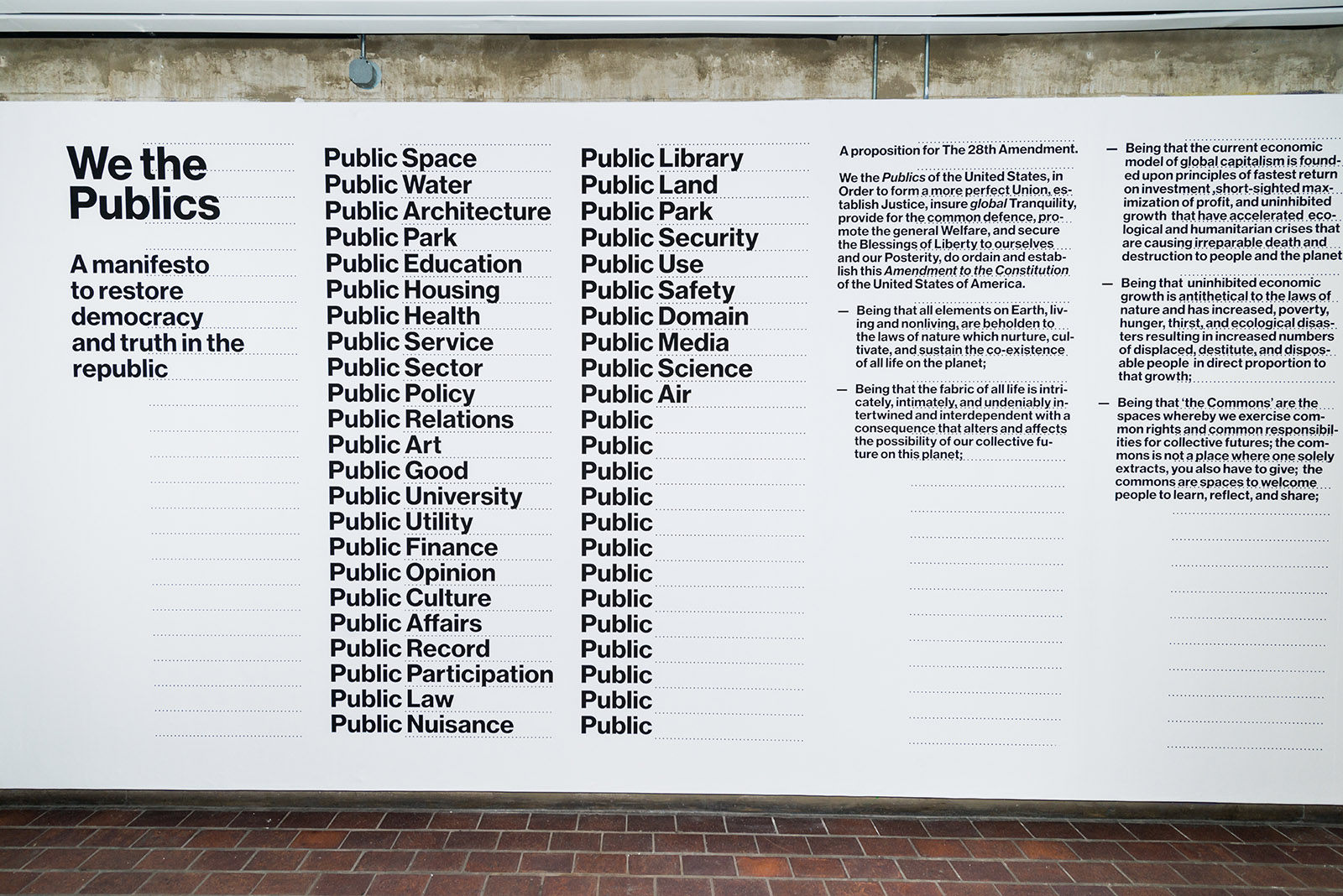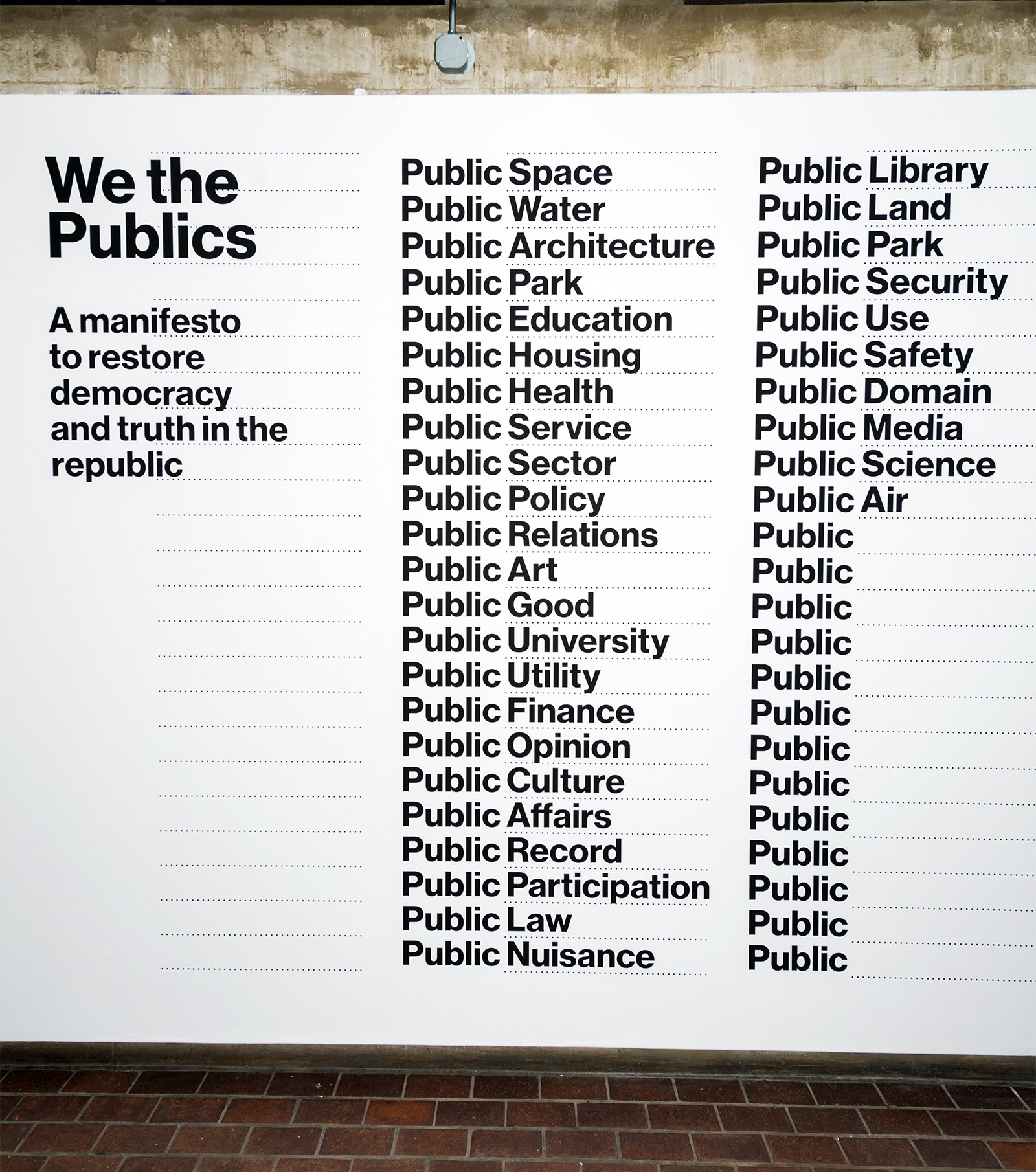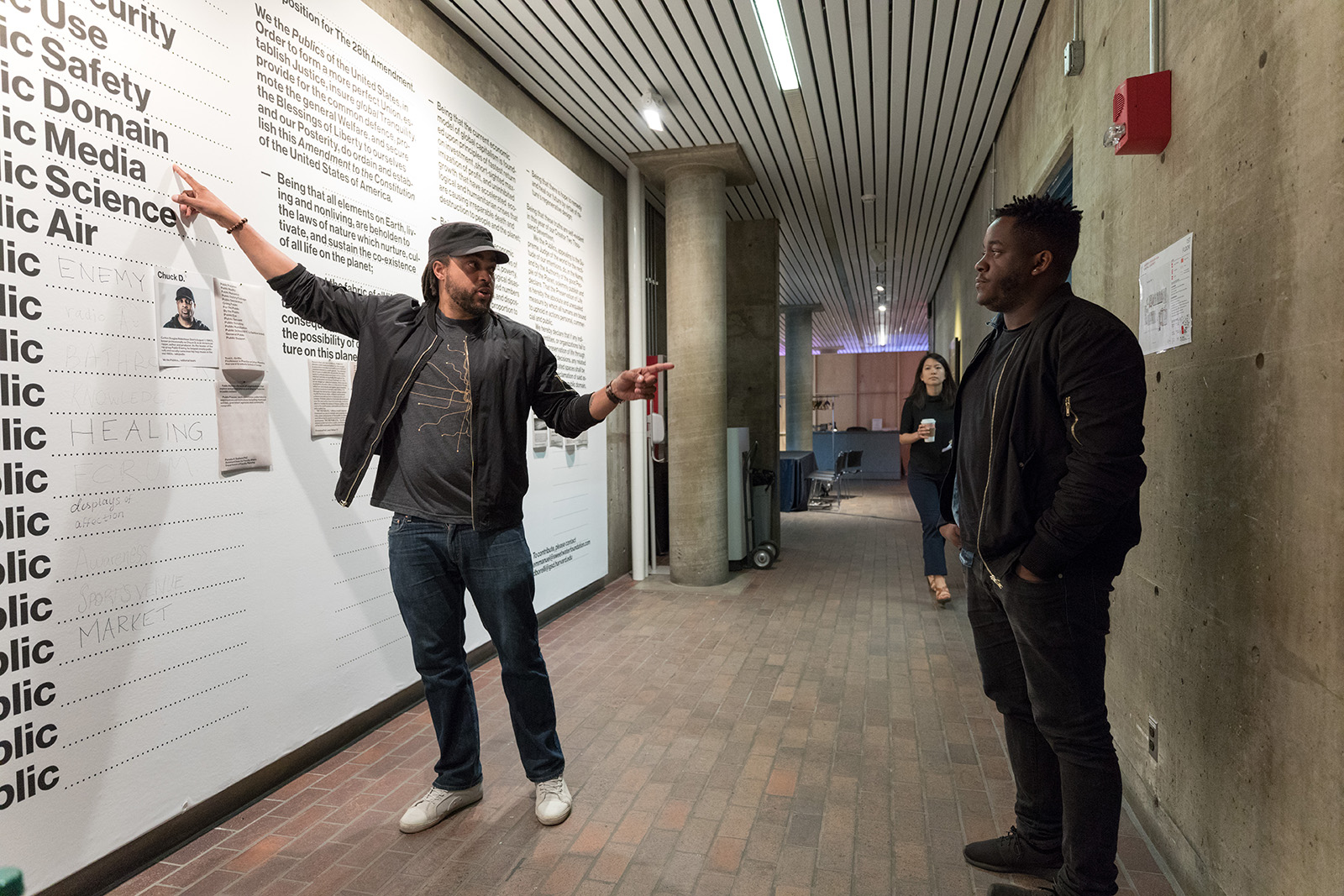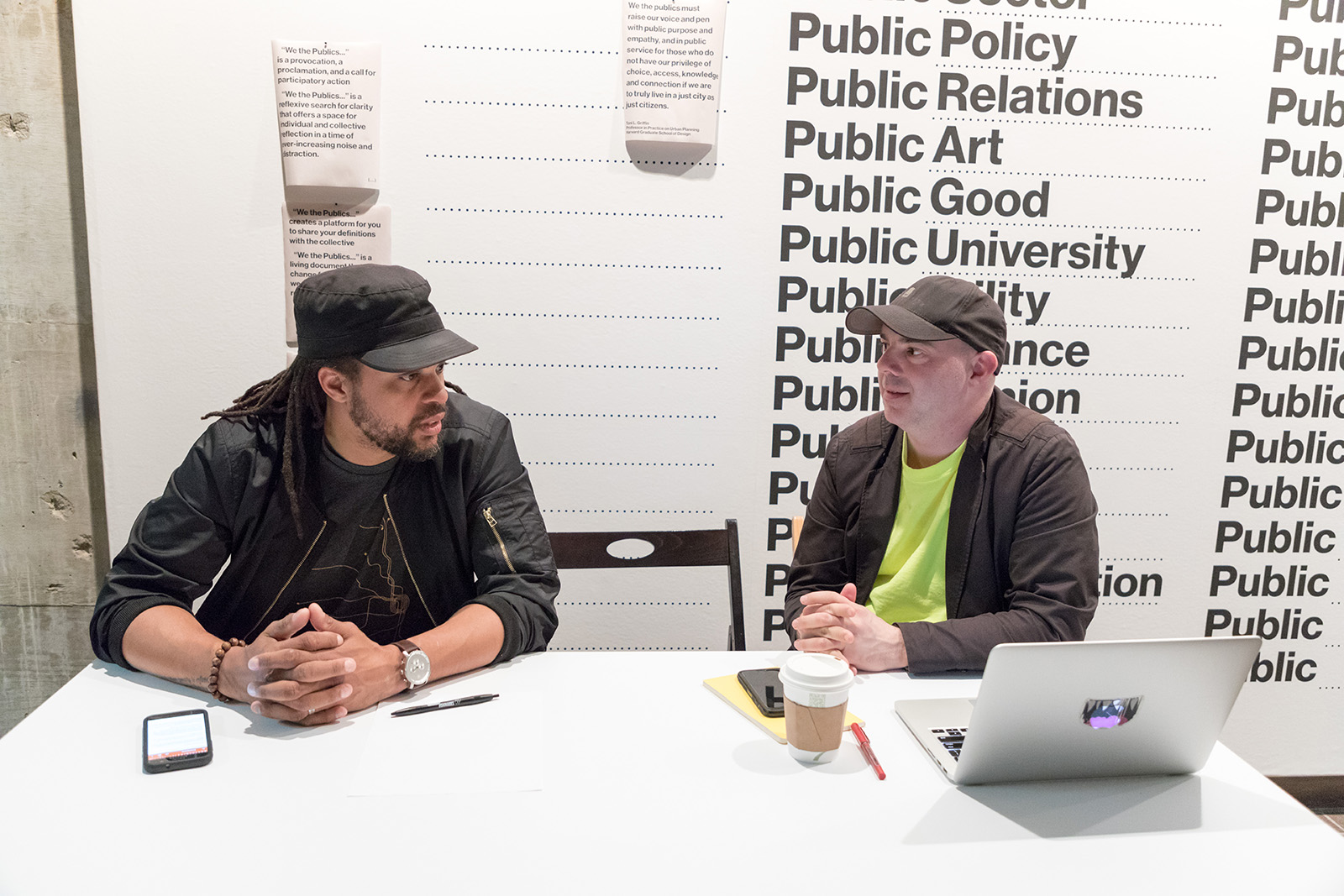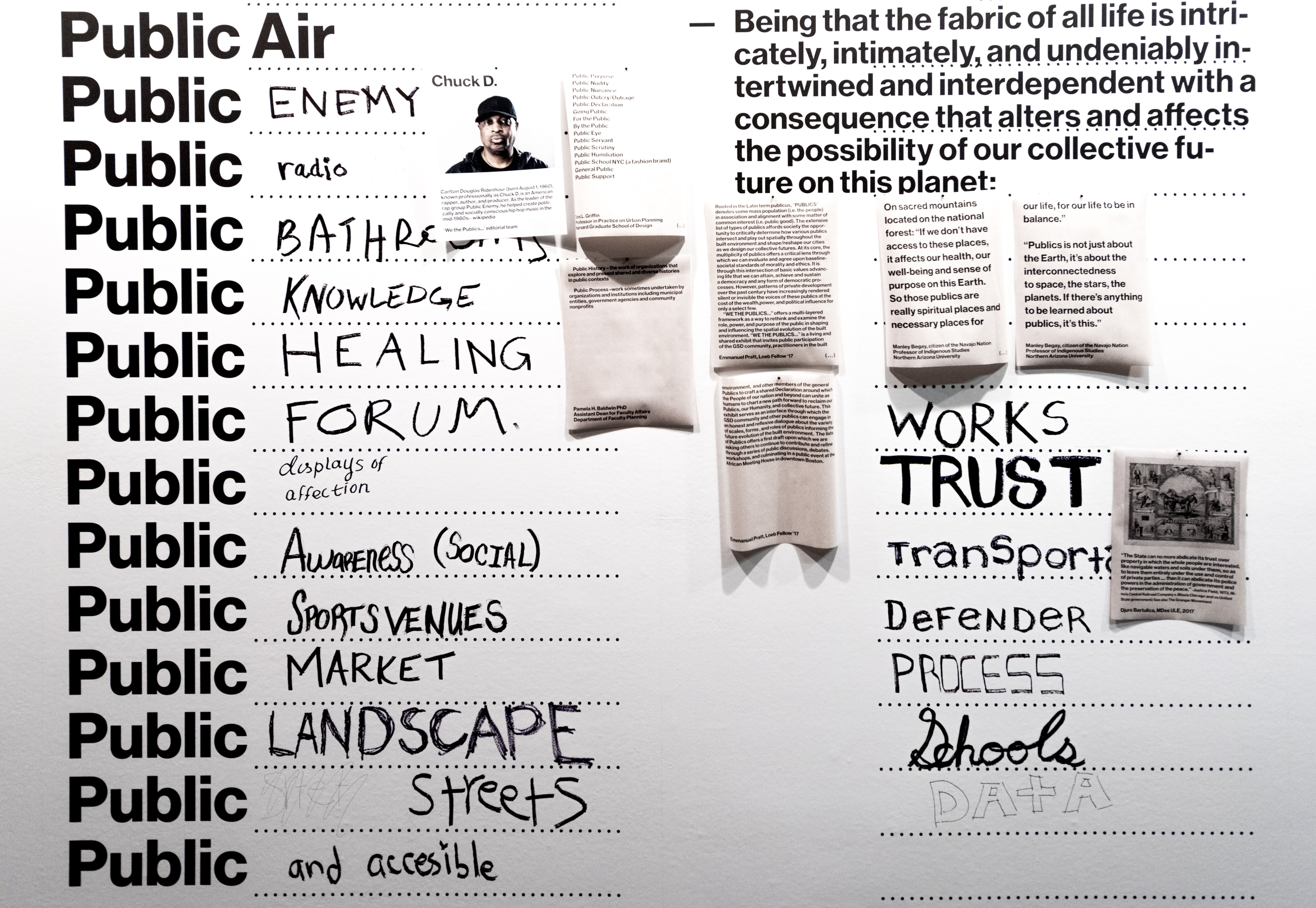We the Publics: A manifesto to restore democracy and truth in the Republic
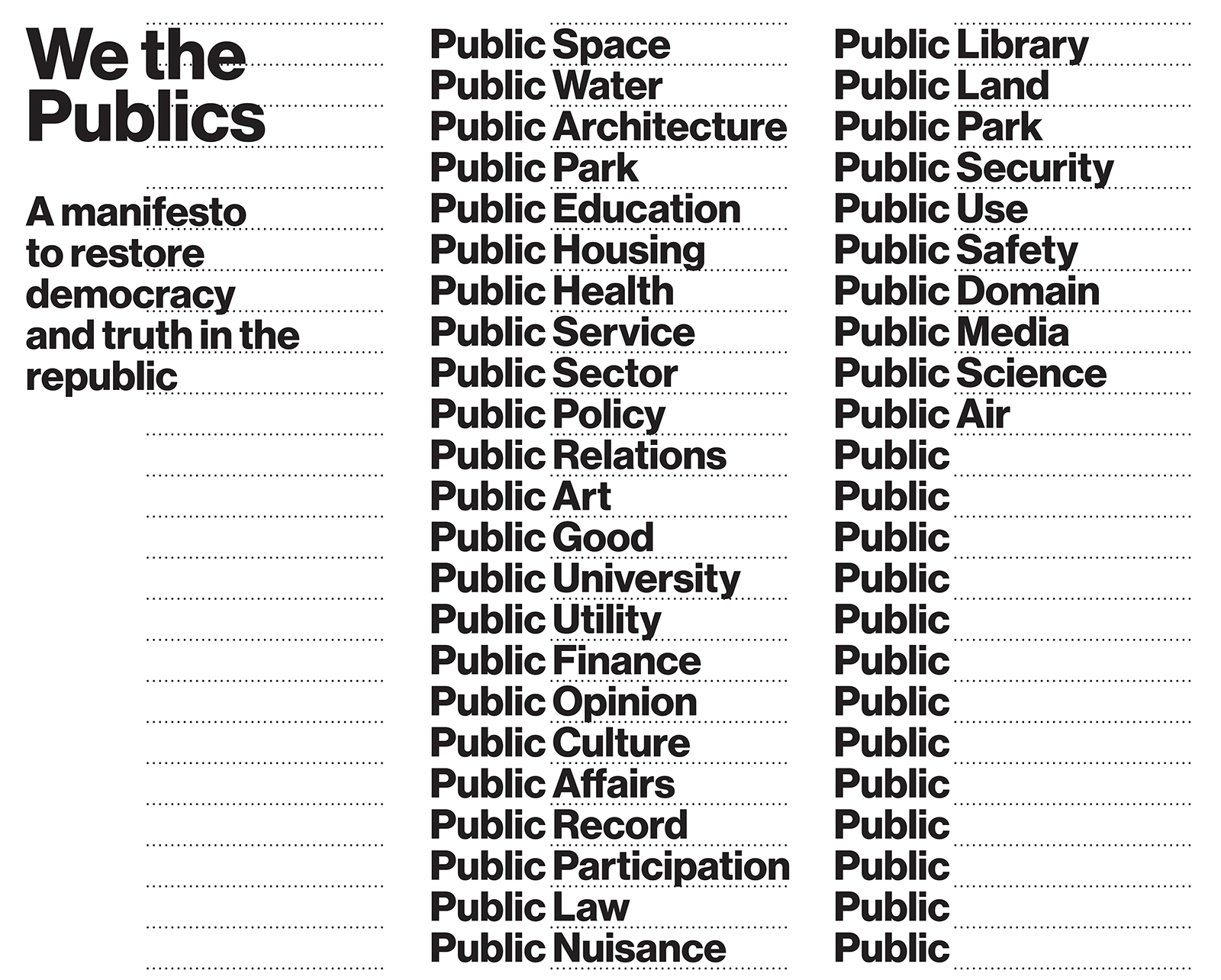
“We the Publics…” is a provocation, a proclamation, and a call for participatory action
“We the Publics…” is a reflexive search for clarity that offers a space for individual and collective reflection in a time of ever-increasing noise and distraction
“We the Publics…” creates a platform for you to share your definitions with the collective
“We the Publics…” is a living document that will change from week to week based upon your responses and feedback
This exhibition is the result of a series of discussions between Emmanuel Pratt (Loeb Fellow ’17) and Dan Borelli (Director of Exhibitions, MDes ‘12) after participating in a series of town halls, forums and public talks within the GSD regarding the state of humanitarian and political crises (climate change, xenophobia, police brutality, contamination to name just a few). “We the Publics…” is a response to the steady erosion of the Publics over the last century that has, today, accelerated at warp speed. In these times filled with uncertainty, “fake news”, and “alternative facts” this project is a small step towards the protection, restoration, and reclamation of the Publics as being paramount not only to American democracy, but world peace and life on our planet.
By placing the subject of Publics back into the public space of the GSD, we are aiming to capture a discourse with this community by starting with our provisional list of Publics as a prompt for you to complete, respond, and name your Publics.
In an effort to address the dire need to refocus on the Publics, Emmanuel, in collaboration with Jia Lok Pratt, revisited the notion of the Declaration of Independence, seeking to document a manifesto capable of guiding the humans of America towards a sustainable future. We worked with the graphic designer Andrew LeClair, and we collectively agreed to translate the manifesto typographically into a visual installation for the “Experiment’s” wall in the GSD. We’d like to thank the GSD, the Loeb Fellowship, Departments of Communications, Exhibitions and the Installation Team for supporting this project.
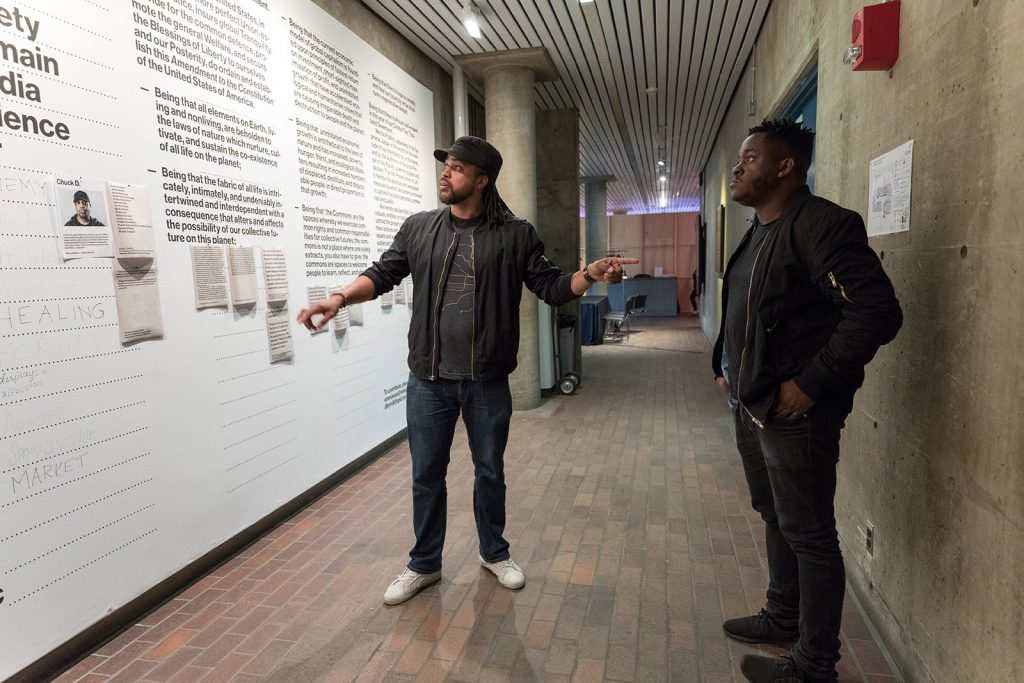
First Response by Emmanuel Pratt, Loeb Fellow ‘17 :
Rooted in the Latin term publicus, “PUBLICS” denotes some mass population (i.e. the people) in association and alignment with some matter of common interest (i.e. public good). The extensive list of types of publics affords society the opportunity to critically determine how various publics intersect and play out spatially throughout the built environment and shape/reshape our cities as we design our collective futures. At its core, the multiplicity of publics offers a critical lens through which we can evaluate and agree upon baseline societal standards of morality and ethics. It is through this intersection of basic values advancing life that we can attain, achieve and sustain a democracy and any form of democratic processes. However, patterns of private development over the past century have increasingly rendered silent or invisible the voices of these publics at the cost of the wealth,power, and political influence for only a select few.
“WE THE PUBLICS…” offers a multi-layered framework as a way to rethink and examine the role, power, and purpose of the public in shaping and influencing the spatial evolution of the built environment. “WE THE PUBLICS…” is a living and shared exhibit that invites public participation of the GSD community, practitioners in the built environment, and other members of the general Publics to craft a shared Declaration around which the People of our nation and beyond can unite as humans to chart a new path forward to reclaim our Publics, our Humanity, and collective future. This exhibit serves as an interface through which the GSD community and other publics can engage in an honest and reflexive dialogue about the variety of scales, forms , and roles of publics informing the future evolution of the built environment. The lists of Publics offers a first draft upon which we are asking others to continue to contribute and refine through a series of public discussions, debates, workshops, and culminating in a public event at the African Meeting House in downtown Boston.
To participate and submit your response, please contact
Emmanuel Pratt: [email protected]
or Dan Borelli: [email protected]
